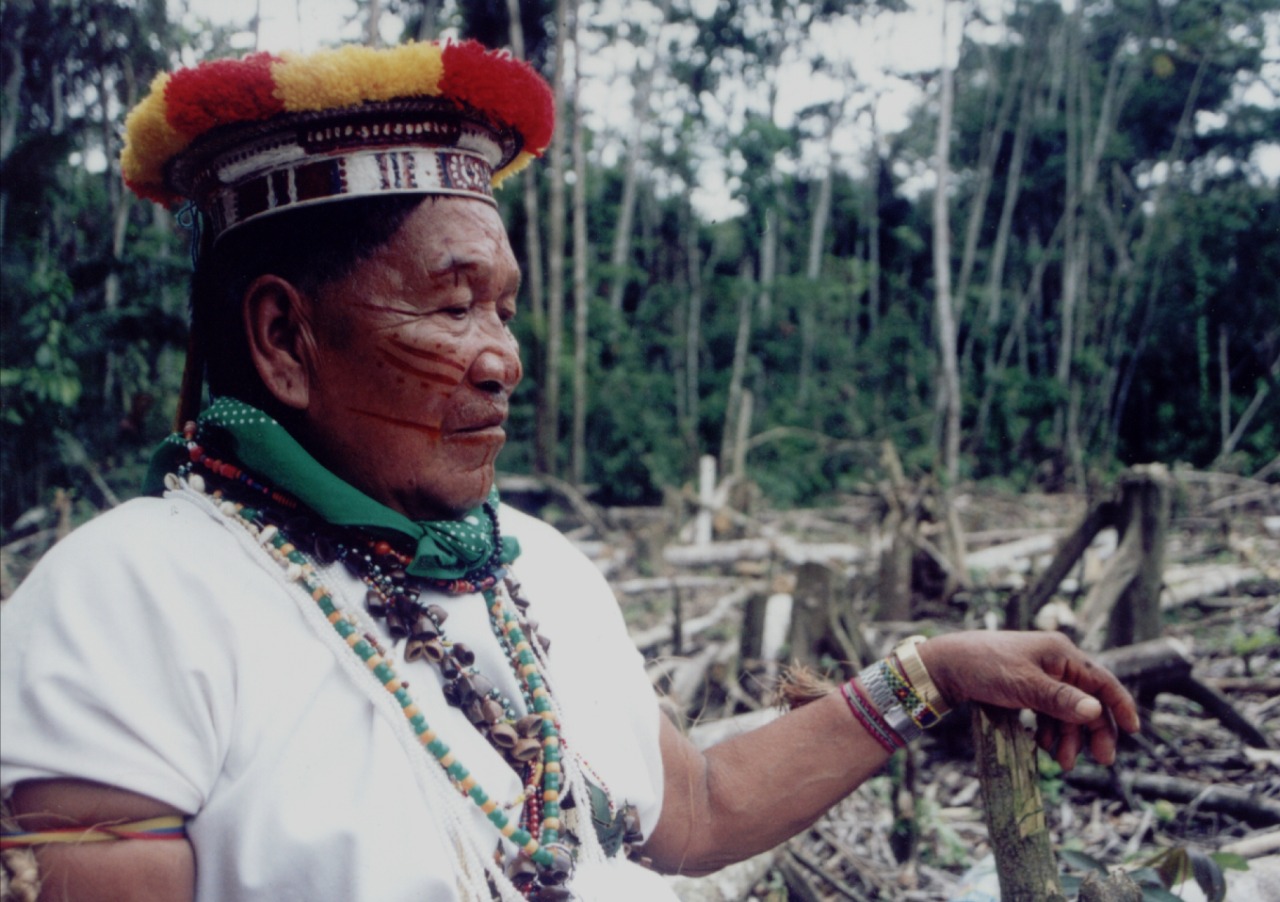
Several years ago, Ecuador announced to the world that it had recognized the rights of nature in its new Constitution, declaring Mother Nature as a subject of law, which would serve to protect the environment. In practice, this has remained a proclamation, and from the outset, the effective application of this law has been very challenging. Likewise, the effective application of the Rights of Indigenous Peoples and the right to health have been difficult to apply; now painfully evident in the current global health emergency.
Human well-being - especially for vulnerable groups, such as Indigenous Peoples - and the well-being of nature are synonymous with health. The integral health of indigenous groups, a complete state of physical, mental and social well-being, is a fundamental necessity for Indigenous Peoples to be able to achieve equality with other human societies.
In the same context, for the environment to be in good health, it will require conservation protocols, proper management, and rational allocation of natural resources. A healthy environment is the sustainable foundation of many ecosystem services and products, key to the survival of humanity, including: water, air, climate regulation, food, and medicine, among others.
However, the health of Indigenous Peoples and the environment is constantly under attack. In the case of the Indigenous Peoples of the Amazon Basin, medical care is very limited, something that has been starkly highlighted during the COVID-19 pandemic. We are witnessing rates of infection among Indigenous Peoples increasing, and there have already been hundreds of deaths. This is very alarming because if the disease progresses, and attacks the elderly, we are at risk of losing thousands of years of traditional knowledge and wisdom and with it, the hundreds of cultures that live in these rainforests. The same is happening with nature: we exploit it until it is diminished to near destruction. We are reaching the point of no return, which would be the end of the planet as we know it today.
In times of crisis, such as the era we are currently living in, it is common to hear about the vulnerability of people and the environment. It seems that we always need a shock to understand the importance of preserving the environment. We must also invest in the right to adequate food, the right to quality intercultural education, and the right to live in a healthy environment.
Trying to implement effective measures for the protection of Indigenous Peoples once the virus progresses through marginalized territories is an almost impossible task. Proposing quarantine measures for communities to stay in their territories is a strategy that can work as long as food security is guaranteed, something that has been difficult to ensure due to geography and lack of supplies. On the other hand, encouraging Indigenous Peoples to search for food in the jungle is also a challenge since many of their native lands have been altered by a series of industrial and economic activities, which have exhausted their resources.
From a general perspective, the health of Indigenous Peoples will be guaranteed only when real work is done to conserve their lands. Modern societies have forgotten the importance of the relationship between humans and nature.
Some 40 years ago, the Ecuadorian Amazon rainforest was an area relatively untouched, where the different indigenous cultures met all their needs with the resources that the forest provided: food, medicine, construction materials, etc. Indigenous Peoples carried out effective resource management activities, which allowed them to live and prosper in these areas for millennia.
This pandemic has reminded us how intertwined and dependent we are on the natural world. Rebalancing our relationship with nature will require learning from traditional communities and respecting the environment, but first, we must ensure their survival.
Written by: Pablo Yépez - Director of Socio - environmental affairs.
Photography by: Pablo Yépez - Director of Socio - environmental affairs.
Años atrás el Ecuador comunicó al mundo que elaboró una Constitución sumamente avanzada en la que incluía y declaraba a la Madre Naturaleza como sujeto de derecho, acontecimiento inédito que serviría para cuidar el medio ambiente. En la práctica esto quedó como un enunciado, y desde sus inicios la aplicación efectiva de este derecho fue un reto muy grande. De igual manera la aplicación efectiva de los Derechos de los Pueblos Indígenas y el derecho a la salud, han sido difícil de aplicar y algo que se evidencia en la actual emergencia sanitaria mundial.
El bienestar humano - en especial de los grupos vulnerables: como son los Pueblos Indígenas-, y el bienestar de la naturaleza, son sinónimos de Salud. La salud integral de los grupos indígenas entendida como un estado completo de bienestar físico, mental y social, es el pilar fundamental para que los grupos originarios lleguen a estar en igualdad de condiciones con otras sociedades humanas.
En el mismo contexto, para que el ambiente esté en buen estado de salud, se requerirá de protocolos de conservación, del manejo adecuado, y racional para la obtención de recursos naturales. Un ambiente sano es la fuente sostenible de muchos servicios y productos ambientales, claves para la supervivencia de la humanidad, entre los que podemos enumerar: agua, aire, regulación del clima, alimentos, medicinas, etc.
Sin embargo, la salud de los Pueblos Indígenas y de la naturaleza son vulneradas constantemente. En el caso de los Pueblos Indígenas de la Cuenca Amazónica la atención médica es muy precaria, algo que se ha revelado durante la pandemia del COVID 19. Vemos que los grupos originarios están contagiados, y ya se cuentan por cientos a los fallecidos. Una noticia muy alarmante ya que si la enfermedad avanza, y ataca a las personas mayores, existiría el peligro de perder a los sabios indígenas y con ellos, a los cientos de culturas que viven en estas selvas. Sucede lo mismo con la naturaleza, la explotamos hasta reducirla de una manera alarmante. Estamos llegando al punto de no retorno, que sería el fin del planeta tal como hoy lo conocemos.
En épocas de crisis, como en la que vivimos actualmente, es común oír sobre la vulnerabilidad de los humanos y el ambiente. Tal parece que siempre nos hace falta un sacudón para entender la importancia de conservar el medio ambiente. Debemos también invertir en el derecho a una alimentación adecuada, en el derecho a una educación intercultural de calidad, y en el derecho a vivir en un ambiente sano.
Tratar de implementar medidas efectivas para la protección de los pueblos indígenas una vez que avanza el virus por territorios marginalizados es una tarea casi imposible. Proponer medidas de confinamiento para que las comunidades se queden en sus territorios es una medida que puede funcionar siempre y cuando se garantice la seguridad alimentaria, acción que es difícil de realizar por la geografía y la falta de suministros. Por otro lado, invitar a los Pueblos Indígenas a que busquen su alimento en la selva resulta también un reto ya que muchas de sus tierras originarias han sido alteradas por una serie de actividades industriales y económicas, que han agotado sus recursos.
Desde una perspectiva general y amplia, la salud de los pueblos indígenas será garantizada sólo cuando se trabaje realmente en la conservación de sus tierras. Las sociedades modernas se han olvidado de la importancia de la relación entre el ser humano y la naturaleza.
Como anécdota, hace unos 40 años la selva amazónica ecuatoriana era un sitio poco explorado, ahí las diferentes culturas indígenas satisfacían todas sus necesidades de los recursos que les proveía el bosque: alimentos, medicina, materiales de construcción, etc. De acuerdo a varios estudios, los indígenas realizaban una serie de actividades de manejo efectivo de los recursos, lo que les permitió vivir y desarrollarse en estas áreas, desde hace milenios.
Esta pandemia nos ha recordado lo entrelazados y dependientes que estamos del mundo natural. Reequilibrar nuestra relación con la naturaleza requerirá aprender de las comunidades originarios y respetar el ambiente, pero primero, debemos garantizar su supervivencia.
Escrito por: Pablo Yépez - Director de Asuntos Socio Ambientales
Fotografía por: Pablo Yépez - Director de Asuntos Socio Ambientales (

